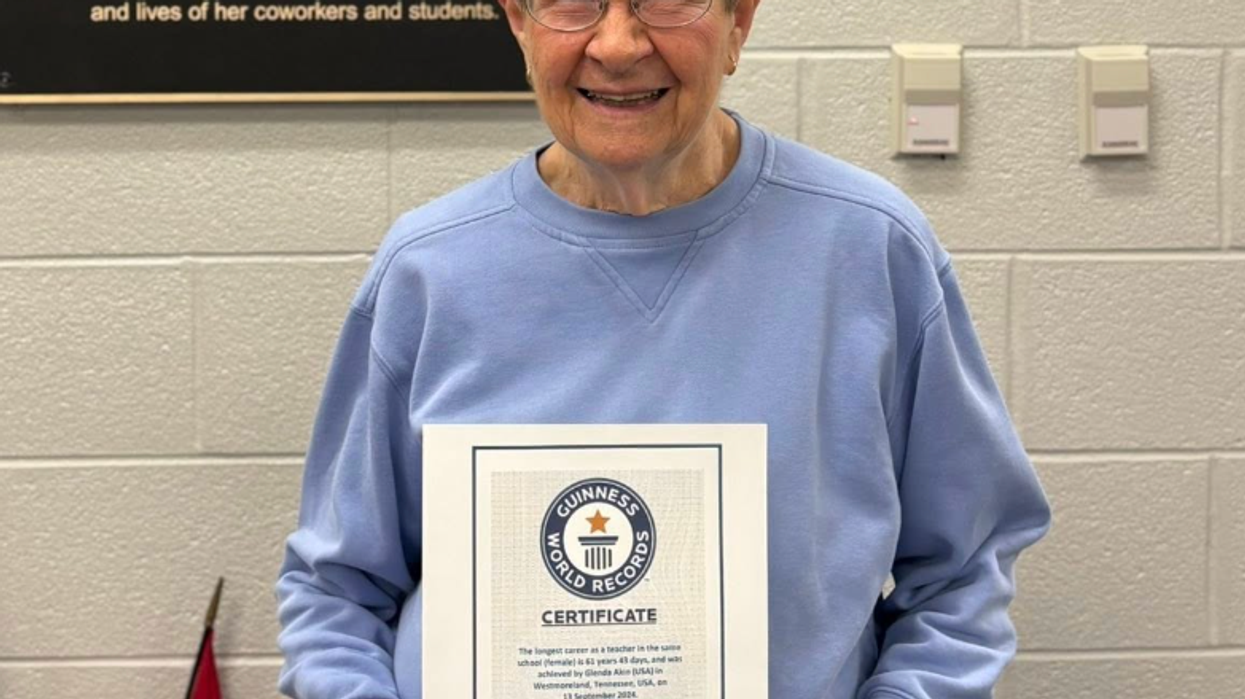Since the Hate Crime Statistics Act was passed in 1990, the attorney general is required to gather data on hate crimes. The rise and fall and rise again in the amount of hate crimes can tell us a lot about where we are as a nation, and it's not pretty. According to the FBI, the two worst months for hate crimes in the past decade were November 2016, when the presidential election took place, and October 2018, the month before the midterm election. The months following September 11th have the highest amount of hate crimes on record.
Despite the increase around the midterm elections, hate crimes in 2018 were slightly down from 2017, according to FBI data. However, hate crimes rose in major cities. Last year, New York, Chicago and Los Angeles reported the highest incidence of hate crimes since 2001, with anti-Semitic hate crimes making up the largest number of hate crimes.
RELATED: Rabbi who survived synagogue shooting gives a moving tribute to the woman who died protecting him.
The Los Angeles Times recently reported on an uptick in hate crimes in the L.A. area, explaining: "Reports of hate crimes rose in Los Angeles for the fifth straight year in 2019, increasing 10.3% over the year before and reaching their highest level since 2002." All in all, 322 hate crimes were reported in 2019, which is up from 292 in 2018.
Reports of hate crimes based on sexual orientation and hate crimes based on race or ethnicity didn't rise significantly in Los Angeles. Hate crimes against gay males was actually down from 56 to 53, which might suggest that LGBTQ people are gaining more acceptance. Hate crimes based on religion and gender identity rose. Anti-Semitic hate crimes saw a large spike, rising by 60.5% from 43 to 69, and anti-Muslim hate crimes increased by 150% from two to five. Hate crimes against transgendered people rose by 23.5% from 17 to 21.
Los Angeles isn't the only city that reported an increase in anti-Semitism. Overall, crime in New York City was at a record low in 2019, however hate crimes were up by 20% in 2019, rising from 256 to 428. Anti-Semitic hate crimes shot up by 26%, with a dozen of the 47 anti-Semitic incidents taking place in December alone.
RELATED: So few kids know about the Holocaust, Oregon had to pass a law requiring schools to teach about it.
The hate crime statistics indicate just how bad the divisiveness in this country has gotten. "I can tell you, with an election season coming up, we really have to be concerned because over the last decade, the three worst months were all around politically charged events," Brian Levin, director of the Center for the Study of Hate and Extremism at Cal State San Bernardino told the Los Angeles Times. "Hate crimes tend to go up in election years, and most recently, the most diverse and bluest cities are where we've been seeing some of the biggest increases." What is it about political turmoil that makes people actively and openly hate other people?
We have to get through another election cycle this year. There's no way around it. But we do have the option to choose to be kind to each other, despite our differences. At the end of the day, we all want to get to the same place, even if we have different ways of getting there.


















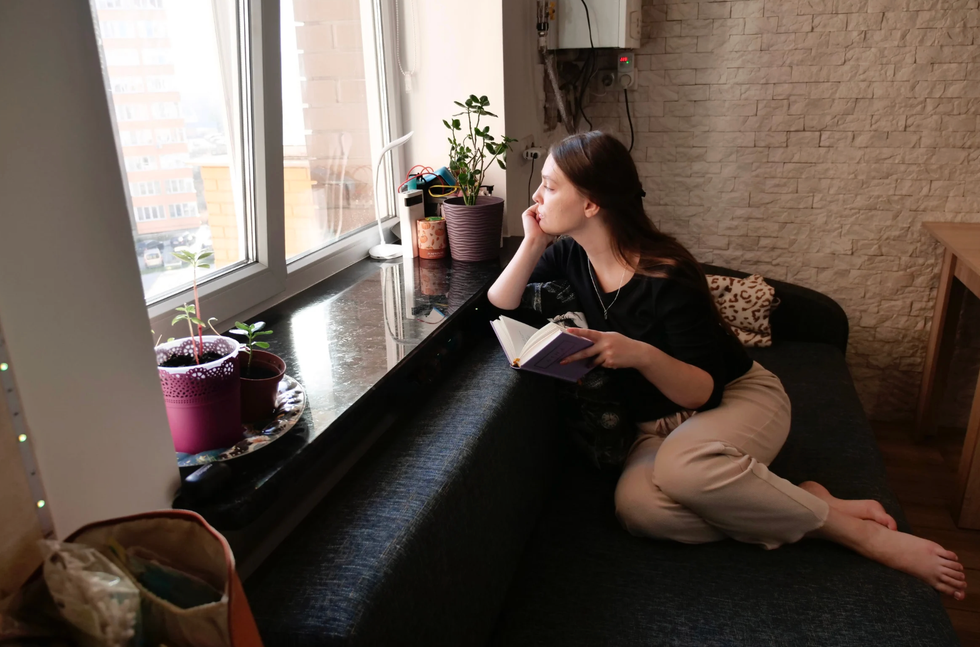 A woman relaxes with a book at homeCanva
A woman relaxes with a book at homeCanva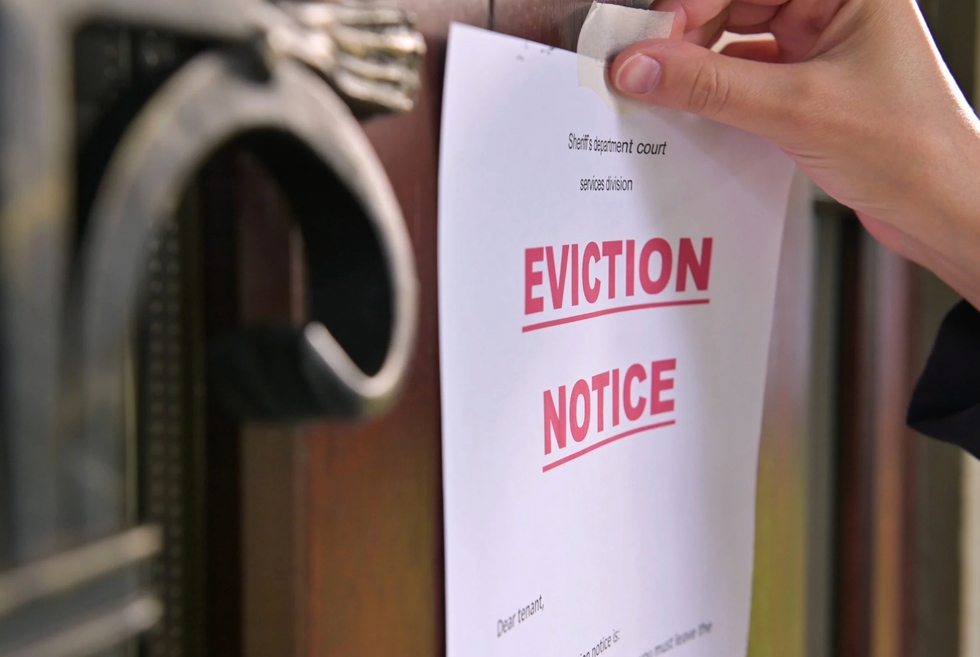 An eviction notice is being attached to a doorCanva
An eviction notice is being attached to a doorCanva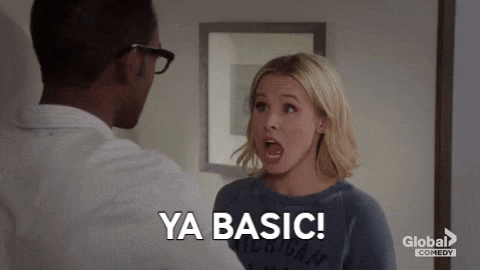 Gif of Kristen Bell saying 'Ya basic!' via
Gif of Kristen Bell saying 'Ya basic!' via 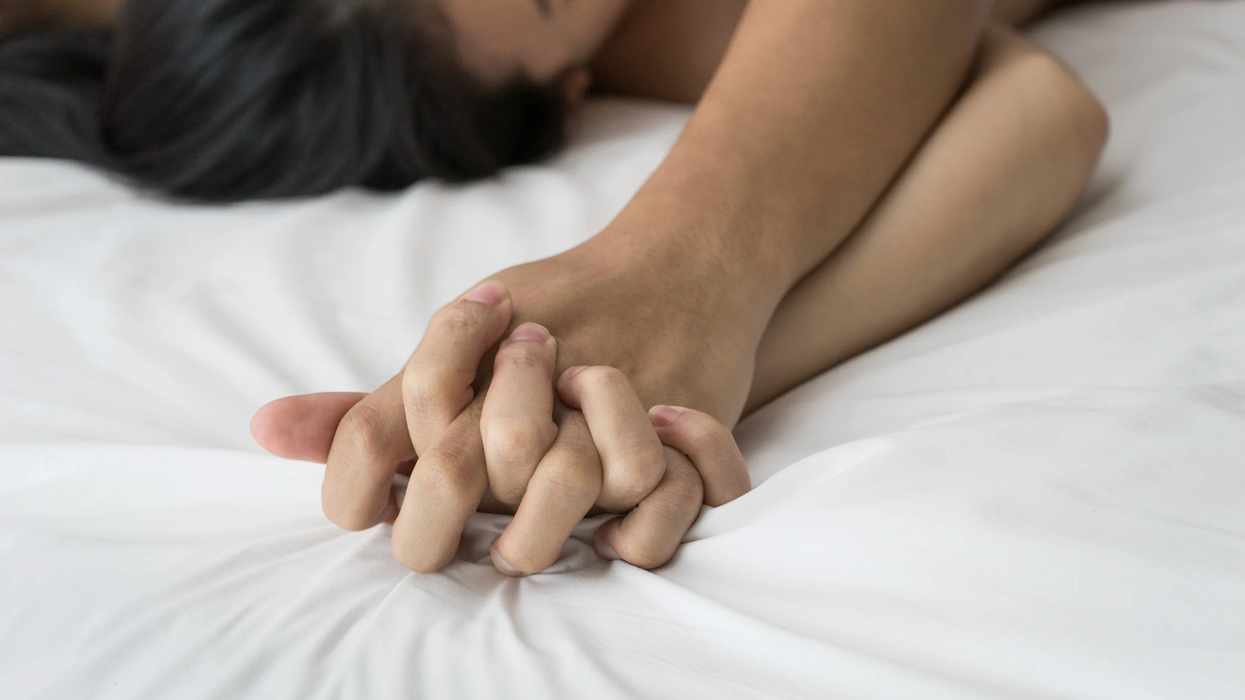
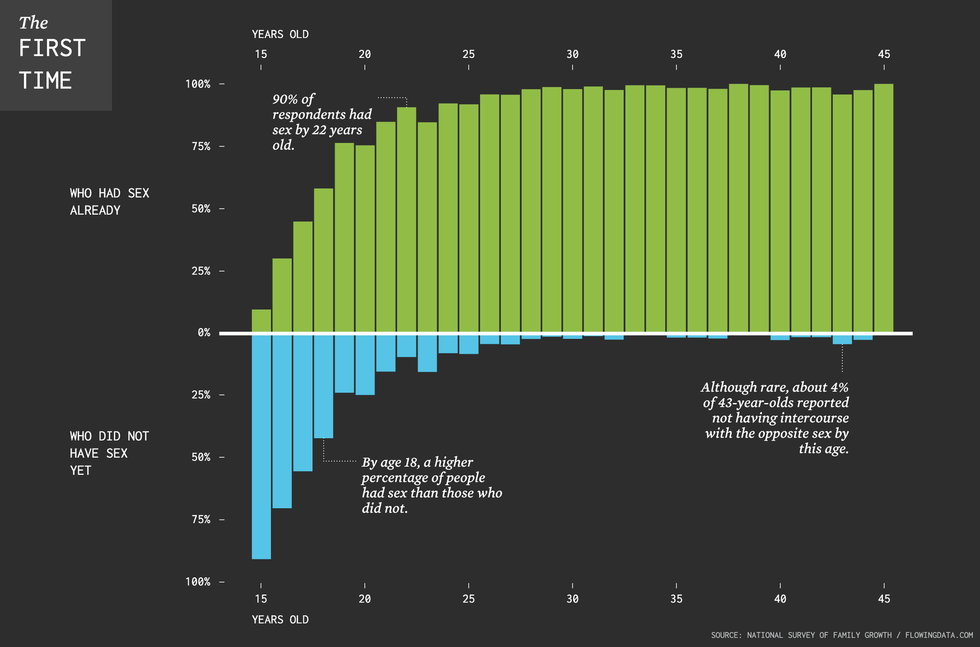 The chart illustrates that between ages 16 and 20, roughly half the population loses their virginity. By age 22, 90% of the population has had sex.
The chart illustrates that between ages 16 and 20, roughly half the population loses their virginity. By age 22, 90% of the population has had sex. A group of young people hold their phonesCanva
A group of young people hold their phonesCanva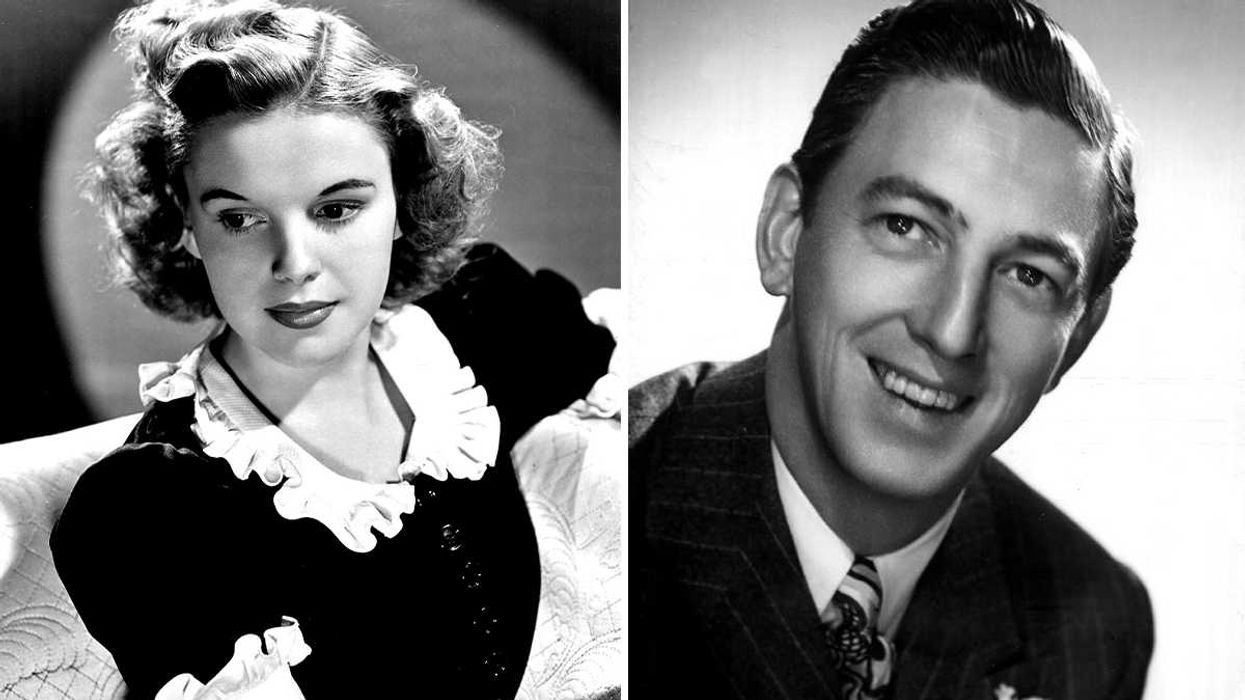
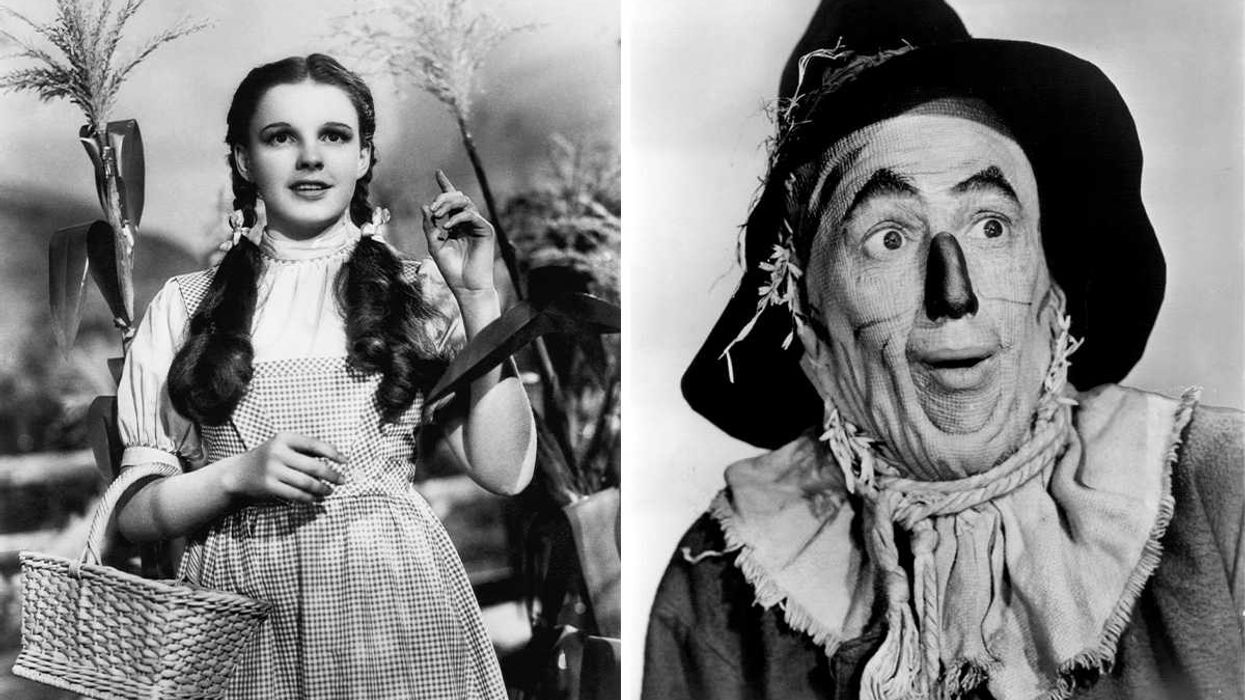 (LEFT) Judy Garland as Dorothy Gale and (RIGHT) Ray Bolger as Scarecrow from "The Wizard of OZ"CBS/
(LEFT) Judy Garland as Dorothy Gale and (RIGHT) Ray Bolger as Scarecrow from "The Wizard of OZ"CBS/ 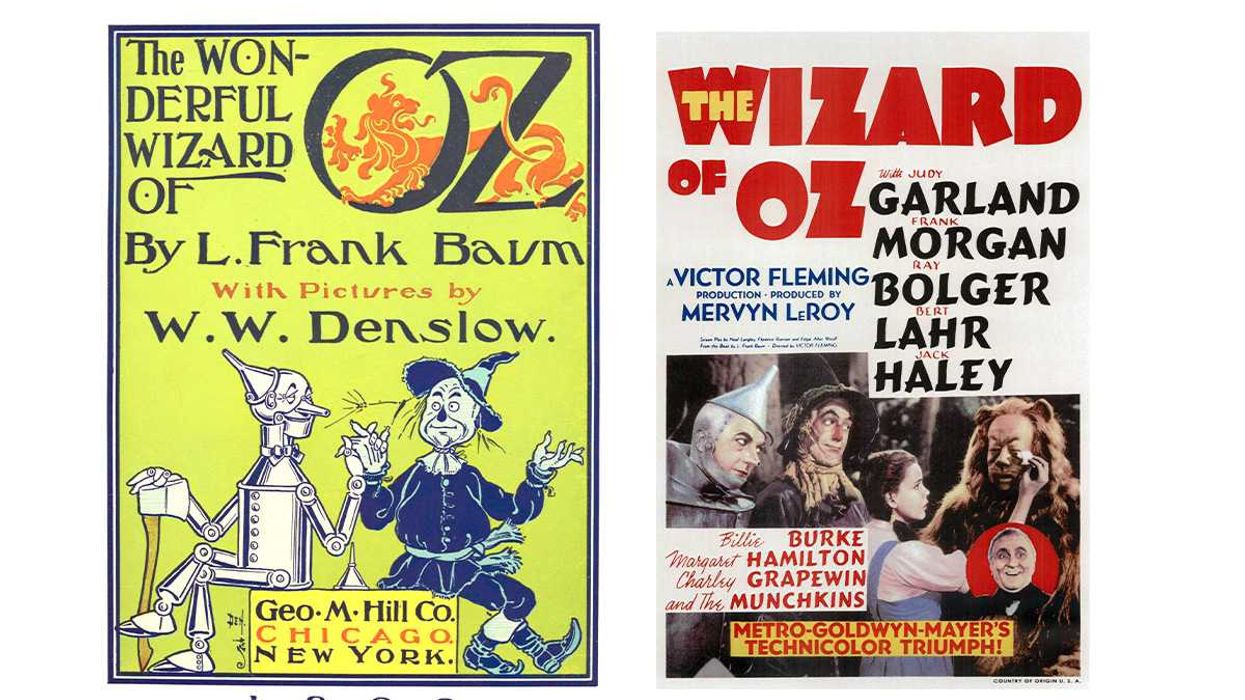 (LEFT) The Wonderful Wizard of Oz children's novel and (RIGHT) The Wizard of Oz movie poster.William Wallace Denslow/
(LEFT) The Wonderful Wizard of Oz children's novel and (RIGHT) The Wizard of Oz movie poster.William Wallace Denslow/ 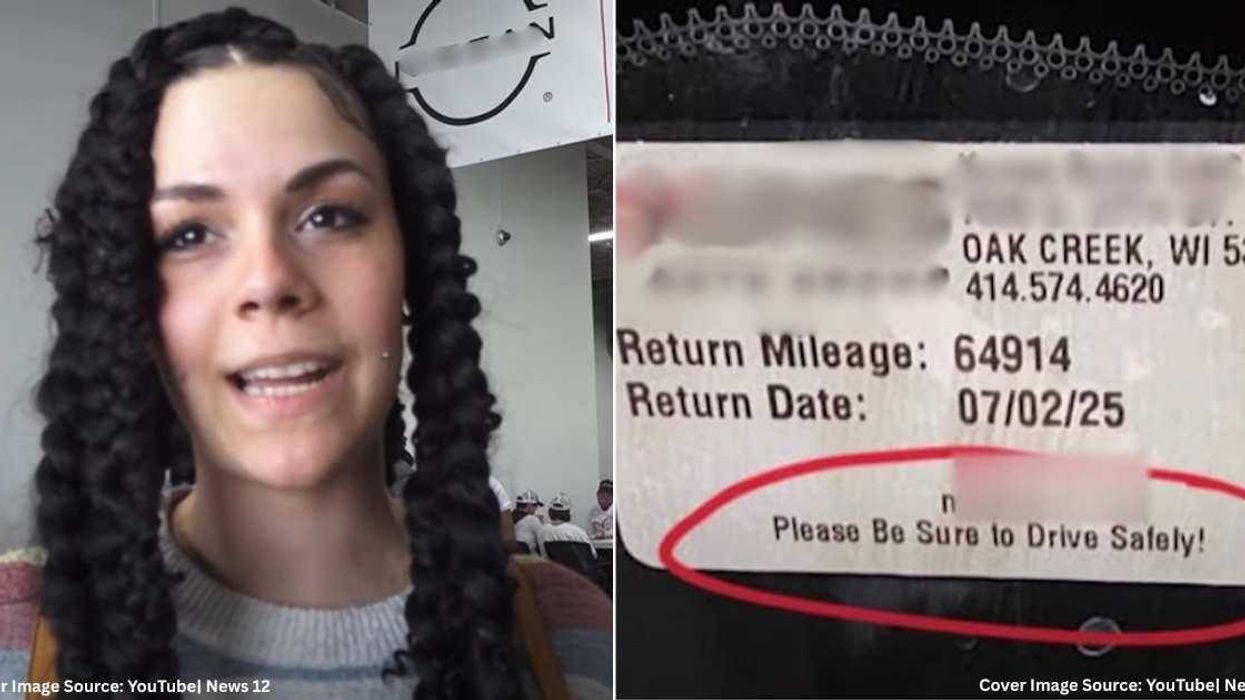
 A frustrated woman at a car dealershipCanva
A frustrated woman at a car dealershipCanva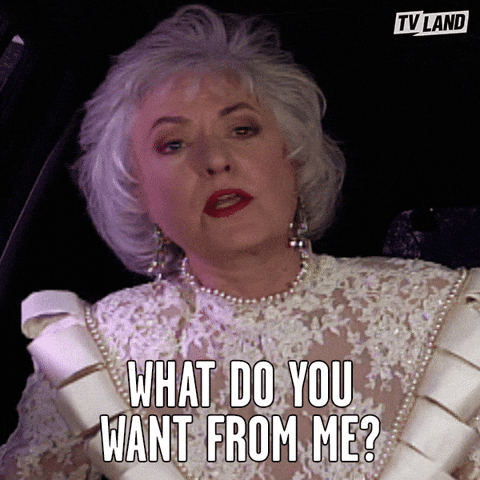 Bee Arthur gif asking "What do you want from me?" via
Bee Arthur gif asking "What do you want from me?" via 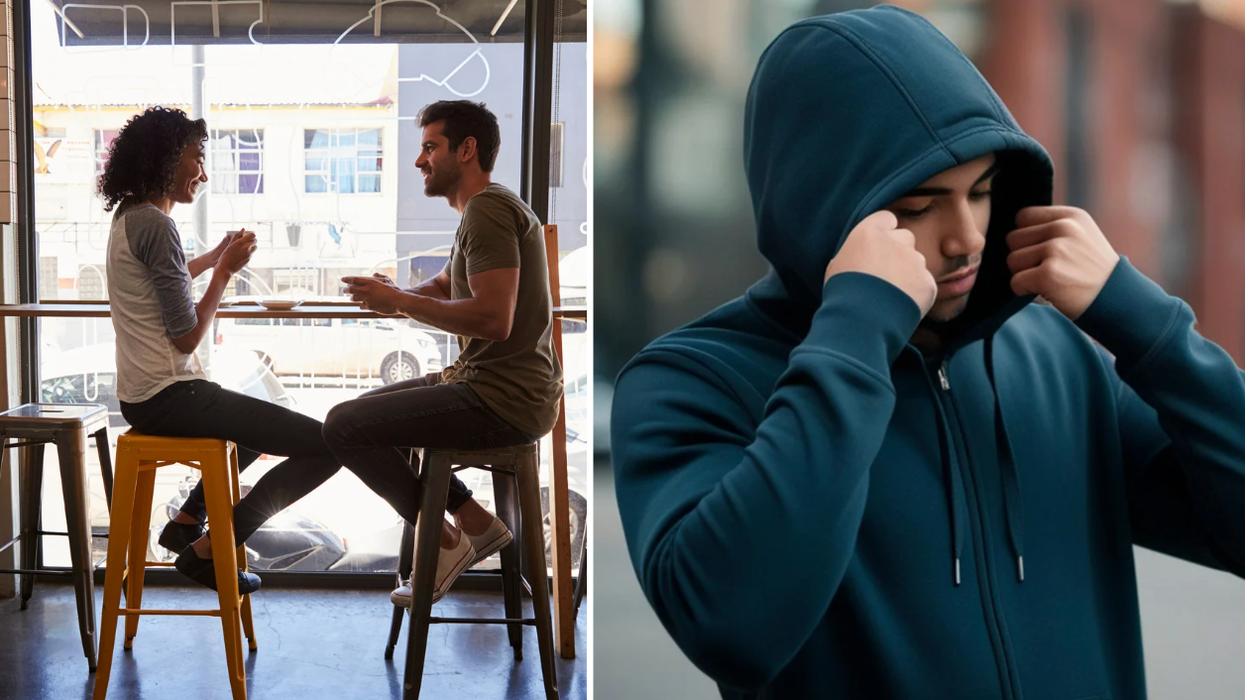
 A couple on a lunch dateCanva
A couple on a lunch dateCanva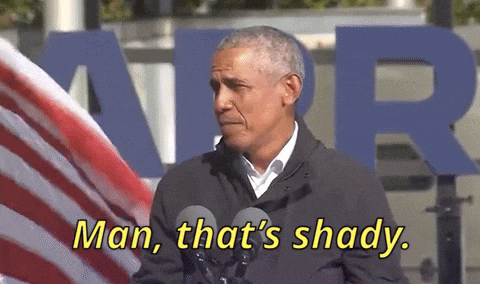 Gif of Obama saying "Man, that's shady" via
Gif of Obama saying "Man, that's shady" via 